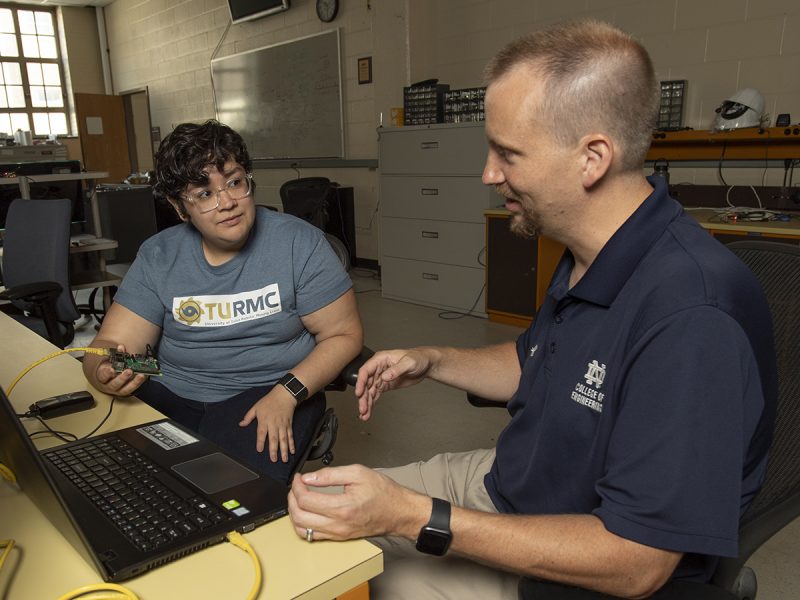WiFi Leaf Detection System

Principal Investigator: Professor Striegel
AWaRE REU Researcher: Alexandra Bejarano, University of Tulsa
Project Description: For a significant portion of the US, a challenge that happens every fall is that of managing the pickup/handling of yard waste due to tree leaves. This is a particularly noteworthy problem for St. Joseph County where the University of Notre Dame is located. A major logistical challenge is how to deploy leaf pickup services to maximize the efficacy of pickup, i.e. it does little good to pick up leaves if there is minimally piled up leaves to pick up. The focus of this REU project will be to explore how we can leverage WiFi to potentially sense the level of leaves still on the trees versus on the ground by virtue of path loss from fixed as well as residential WiFi. This project will explore the extent to which one can fuse passive WiFi sensing from individuals (smartphone apps) and mobile sensors mounted on city vehicles.
Finding: Every fall many places in the US are faced with the management of fallen leaves. In several cities, including the area around the University of Notre Dame, the local municipality is in charge of leaf pick up and disposal to prevent people from simply burning leaves and polluting the air. The issue then lies in knowing the best time to go around and collect leaves. Currently, city vehicles are scheduled to pass through neighborhoods, possibly wasting resources if no/few leaves are there for pick up, or one has to schedule a pick-up. So what if there was a way to automatically know when to go around and collect leaves?
We know that leaves can weaken the strength of WiFi signals. But how reliably could WiFi be used to sense leaves or the lack of leaves on trees? This research was motivated by the following questions: Can one efficiently infer the impact of leaves on WiFi with captures of data packets transmitted over WiFi to possibly determine the most efficient time for leaf pick up? Are packet captures too noisy? Are there enough packets?
Currently, for this research, it captures unencrypted data packets which have been collected with Wireshark, an open-source packet capture and analysis software, on a Raspberry Pi in multiple locations and on multiple WiFi channels. And code has been written to read the packet captures and analyze the information within the files, specifically the access points, signal strength, and a number of packets.

